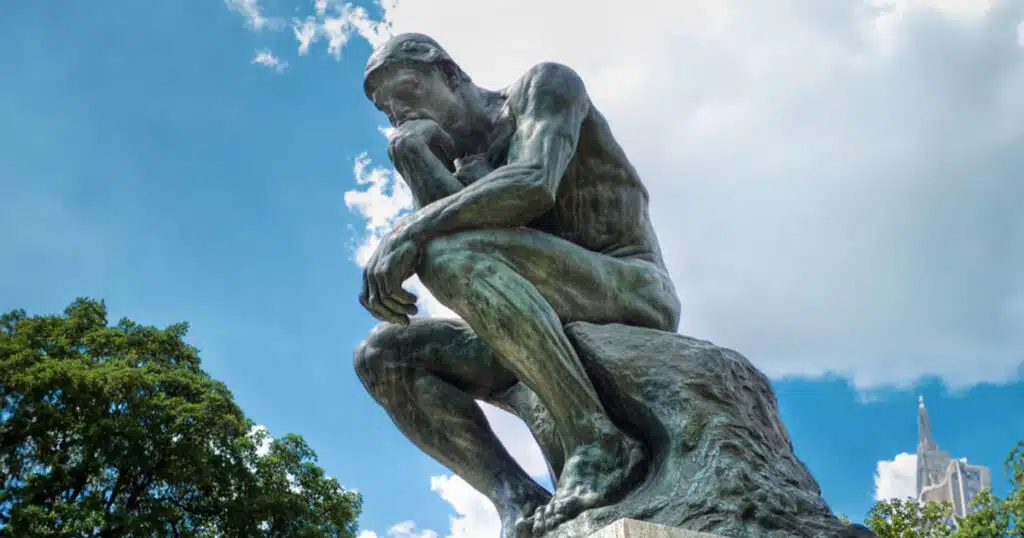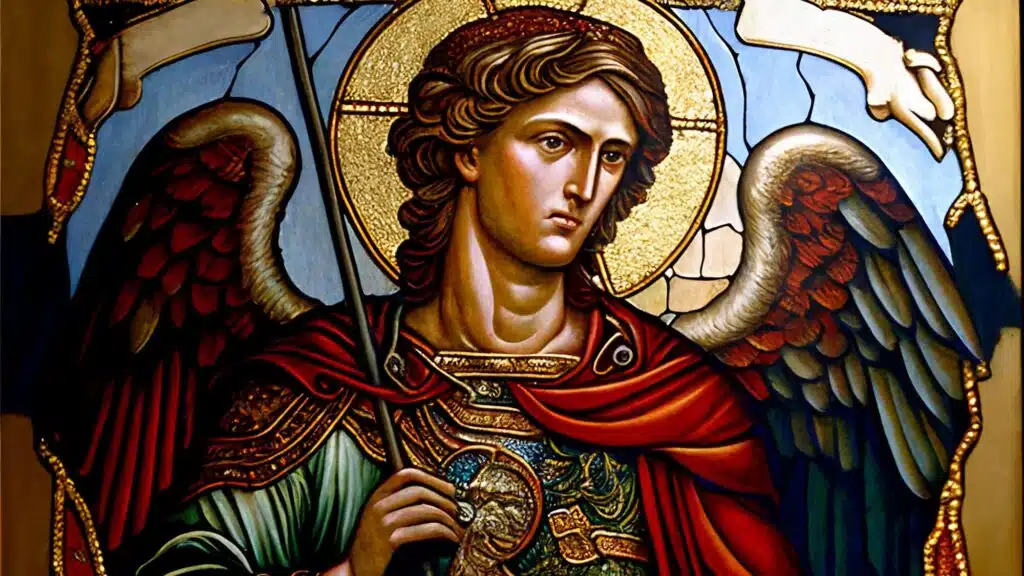
GARLINGTON: Why Does The Elite Still Hate The South?
It has been 157 years since the War between the States ended at Appomattox Courthouse and Southerners were brought back into the union on supposedly equal terms with their Northern cousins. And yet, after three periods of Reconstruction (the first being especially long and brutal, and the current one – the destruction of statues, renaming of streets, buildings, etc., and suchlike – is still ongoing), the Elite (Yankee or otherwise) continue to view Southerners as ‘deplorables’. Why is this?
It is a question worth exploring, as doing so will help us know who Dixie’s true friends and true enemies are, and what policies are fitting for us to pursue. In order to find an answer, we will examine a poem of a great woman writer of the South, Mrs. Margaret Junkin Preston, entitled ‘Beechenbrook: A Rhyme of the War’1, since the North’s War to Prevent Southern Independence brought into sharp relief what was best and most distinctive about the South.
One of the first things we notice about Dixie is normal home life – mother, father, children (Alice and Douglass Dunbar, then Archie, Sophy, Beverly), their affection for one another, and their traditional roles within the hierarchy of the family structure. In Chapter I, Alice is preparing Douglass’s gear as his departure to the Virginia army draws near:
Not a sob has escaped her all day,—not a moan; But now the tide rushes,—for she is alone. On the fresh, shining knapsack she pillows her head, And weeps as a mourner might weep for the dead. She heeds not the three-year old baby at play, As donning the cap, on the carpet he lay; Till she feels on her forehead, his fingers’ soft tips, And on her shut eyelids, the touch of his lips. “Mamma is so sorry!—Mamma is so sad! But Archie can make her look up and be glad: I’ve been praying to God, as you told me to do, That Papa may come back when the battle is thro’:— He says when we pray, that our prayers shall be heard; And Mamma, don’t you always know, God keeps his word?” Around the young comforter stealthily press The arms of his father with sudden caress; Then fast to his heart,—love and duty at strife,— He snatches with fondest emotion, his wife. “My own love! my precious!—I feel I am strong; I know I am brave in opposing the wrong; I could stand where the battle was fiercest, nor feel One quiver of nerve at the flash of the steel; I could gaze on the enemy guiltless of fears, But I quail at the sight of your passionate tears: My calmness forsakes me,—my thoughts are a-whirl, And the stout-hearted man is as weak as a girl.
The main supporting pillar of their family is their Christian faith. As he readies to leave, Douglass offers a prayer to God for his dear ones:
“Father! fold thine arms of pity Round us as we lowly bow; Never have we kneeled before Thee With such burden’d hearts as now! Joy has been our constant portion, And if ill must now befall, With a filial acquiescence, We would thank thee for it all. In the path of present duty, With Thy hand to lean upon, Questioning not the hidden future, May we walk serenely on. For this holy, happy home-love, Purest bliss that crowns my life,— For these tender, trusting children,— For this fondest, faithful wife,— Here I pour my full thanksgiving; And, when heart is torn from heart, Be our sweetest tryst-word, ‘Mizpah,’— Watch betwixt us while we part! And if never round this altar, We should kneel as heretofore,— If these arms in benediction Fold my precious ones no more,— Thou, who in her direst anguish, Sooth’dst thy mother’s lonely lot, In thy still unchanged compassion, Son of Man! forsake them not!”
This heartfelt faith becomes an important pillar of the Confederate Army as well. The prayer of the Chaplain in Chapter VII is good expression of this:
Underneath thine open sky, Father, as we bend the knee, May we feel thy presence nigh, — Nothing ‘twixt our souls and thee! We are weary,—cares and woes Lay their weight on every breast, And each heart before thee knows, That it sighs for inward rest. Thou canst lift this weight away, Thou canst bid these sighings cease; Thou canst walk these waves and say To their restless tossings—”Peace!” We are tempted;—snares abound,— Sin its treacherous meshes weaves; And temptations strew us round, Thicker than the Autumn leaves. Midst these perils, mark our path, Thou who art ‘the life, the way;’ Rend each fatal wile that hath Power to lead our souls astray. Prince of Peace! we follow Thee! Plant thy banner in our sight; Let thy shadowy legions be Guards around our tents to-night.”
The Christian family, and, by extension, Christianity in public life are indelible marks defining Southern life. One often hears slavery mentioned in this context, but this is generally not an obsession with Southerners but rather with Northern apologists who need a way to justify Lincoln’s violent overthrowing of the old decentralized constitutional order and the erection of a new centralized, oligarchic superstate. Gene Kizer, Jr., has in fact written a book with an abundance of footnotes explaining why the War was not mainly about slavery.
If one reads what Southerners of the time actually wrote and said, he will find that their fight with the North was actually over other matters. In all ten chapters of Mrs. Preston’s long poem, there is not one mention of the South fighting to defend slavery. On the contrary, across the South there was an abundance of thoughts like the following, from Chapter I, with Alice speaking:
“Our cause is so holy, so just, and so true,— Thank God! I can give a defender like you! For home, and for children,—for freedoms—for bread,— For the house of our God,—for the graves of our dead,— For leave to exist on the soil of our birth,— For everything manhood holds dearest on earth: When these are the things that we fight for—dare I Hold back my best treasure, with plaint or with sigh? My cheek would blush crimson,—my spirit be galled, If he were not there when the muster was called! When we pleaded for peace, every right was denied; Every pressing petition turned proudly aside; Now God judge betwixt us!—God prosper the right! To brave men there’s nothing remains, but to fight: I grudge you not, Douglass,—die, rather than yield,— And like the old heroes,—come home on your shield!”
And in Chapter II the mainspring driving the Southern fighters is given rather explicitly:
One thought is absorbing, with giant control,— With deadliest earnest, the national soul:— “The right of self-government, crown of our pride,— Right, bought with the sacredest blood,—is denied!
Another chief characteristic of Southern life is her ability to produce great leaders. Mrs. Preston draws a picture of two of the most familiar, Lee and Jackson. From Chapter VI:
What need for dismay? Let the live surges roar, And leap in their fury, our fastnesses o’er, And threaten our beautiful Valley to fill With rapine and ruin more terrible still: What fear we?—See Jackson! his sword in his hand, Like the stern rocks around him, immovable stand,— The wisdom, the skill and the strength that he boasts, Sought ever from him who is Leader of Hosts: — He speaks in the name of his God:—lo! the tide,— The red sea of battle, is seen to divide; The pathway of victory cleaves the dark flood;— And the foe is o’erwhelmed in a deluge of blood!
And from Chapter IX:
—Grand army of martyrs!—though victory waves Them onward, her march must be over their graves: They feel it—they know it,—yet steadier each Close phalanx moves into the desperate breach: Their step does not falter—their faith does not yield,— For yonder, supreme o’er the fiercely-fought field, Erect in his leonine grandeur, they see The proud and magnificent calmness of Lee!
And throughout the poem, there breathes the spirit of Christian love/self-sacrifice – from Alice’s nursing of the wounded soldiers on the battlefield, to Beverly’s giving of the last of his money to buy shoes for an orphan, to Col. Dunbar’s courageous charge upon the enemy (Chapter IX):
“This morning, at daybreak, a terrible charge Was made on the enemy’s centre: such large And fresh reinforcements were held at his back, He stoutly and stubbornly met the attack. “Our cavalry bore themselves splendidly:—far In front of his line galloped Colonel Dunbar; Erect in his stirrups,—his sword flashing high, And the look of a conqueror kindling his eye, His silvery voice rang aloft through the roar Of the musketry poured from the opposite shore: — ‘Remember the Valley!—remember your wives! And on to your duty, boys!—on—with your lives!’ “He turned, and he paused, as he uttered the call— Then reeled in his seat, and fell,—pierced by a ball.
Despite all the heart-rending losses, of husband, home, and treasured mementoes, Alice does not capitulate. Instead, her patriotic ardor for the South grows stronger as her losses mount (Chapter X):
Though wrapped in the weeds of her widowhood, pale,— Though life seems all sunless and dim through the veil That drearily shadows her sorrowful brow,— Is the cause of her country less dear to her now? Does the patriot-flame in her heart cease to stir,— Does she feel that the conflict is over for her? Because the red war-tide has deluged her o’er,— Has wreaked its wild wrath, and can harm her no more,— Does she stand, self-absorbed, on the wreck she has braved, Nor care if her country be lost or be saved? By her pride in the soil that has given her birth— By her tenderest memories garnered on earth— By the legacy blood-bought and precious, which she Would leave to her children—the right to be free,— By the altar where once rose the hymn and the prayer; By the home that lies scarred in its solitude there,— By the pangs she has suffered,—the ills she has borne,— By the desolate exile through which she must mourn,— By the struggles that hallow this fair Southern sod, By the vows she has breathed in the ear of her God,— By the blood of the heart that she worshipped,—the life That enfolded her own; by her love, as his wife; By his death on the battle-field, gallantly brave,— By the shadow that ever will wrap her—his grave— By the faith she reposes, oh! Father! in Thee, She claims that her glorious South MUST BE FREE!
The spirit dwelling within these lines just quoted is what terrifies the Elite the most, what drives their undying hatred of Dixie: that deep within the Southern soul, this spirit, expressed so powerfully by Mrs. Preston – a compounding of such elements as the heroism of the ancient Greek warriors, the vigorous chivalry of the French, English, etc., knights of an earlier age, the fierceness of the Celtic clans – they greatly fear that this Southern spirit, though it lies mostly dormant at the moment due to the manipulations and machinations of their ilk (in government, in schools, in think tanks, in giant corporations, and the like) and due to our own negligence, could once again flame to life and upend their plans for a more complete subjugation of the masses to their whims (as, for example, Pres. Jackson killed the loathsome national bank, and Jefferson and Madison led the State nullification effort of the federal Alien and Sedition Acts).
That is why they must destroy our memorials, erase our history, and brand us forever as racists and traitors – to make sure that flame never burns brightly again. And that is why Southerners must do all in their power to reignite it, to support politicians and policies that uphold and strengthen all that is good in the Southern tradition: the Christian Faith; a clear distinction between the masculine and the feminine; the large family and its ownership of home and land, small farms and businesses; government that restrains rather than empowers the oligarchs; a culture that draws its life from tradition rather than seeking to overturn it; and more besides.
All this to the end that as many as possible in the South and in all likeminded States will be able to experience life not as a panopticon, New Babylon, Gates/Zuckerberg smart city, but rather as a Little Eden, a little corner of Paradise (Chapter I):
. . . in Beechenbrook Cottage; the day Has been bright with the earliest glory of May; The blue of the sky is as tender a blue As ever the sunshine came shimmering through: The songs of the birds and the hum of the bees, As they merrily dart in and out of the trees,— The blooms of the orchard, as sifting its snows, It mingles its odors with hawthorn and rose,— The voice of the brook, as it lapses unseen,— The laughter of children at play on the green,— Insist on a picture so cheerful, so fair,
1Required License Note for use of Project Gutenberg material: ‘This eBook is for the use of anyone anywhere at no cost and with almost no restrictions whatsoever. You may copy it, give it away or re-use it under the terms of the Project Gutenberg License included with this eBook or online at www.gutenberg.org’



